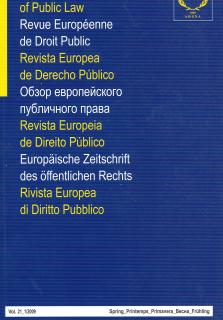
Administration without Frontiers? European Migration Law: The Italian Legislation
Fulvio Cortese
PhD, Researcher of Institutions of Public Law at the Faculty of Law of the University of Trento (Italy)
The Italian Migration Law is exposed to frequent variations, due to often urgent and temporary measures, which are justified by fortuitous circumstances and, mostly, conditioned by the necessity of politics to act in response to severe and alarming episodes of criminality, that is to say relevant and widespread conjectures of illegal entry into the Italian territory by irregular foreigners and clandestine entrants. Traditionally, within the Italian administrative system, “the governance” of the policies regarding immigration mostly falls within the competence of the Executive, and therefore of the Government, with special reference to the Ministry of Interior and to its peripheral structures on the territory (Prefecture, Police Headquarters). With reference to the entry into the Italian territory, a distinction is necessary between the state of those individuals who come from EU Member States and those who come from non-EU Member States. For this second group of people, a set of complex rules is in force, most of them collected in the Legislative Decree of 25 July 1998, n. 286 (“The Consolidation Act of all the regulations governing immigration and of the rules on the status of foreigners”). Concerning the stay in Italy of people from non-EU Member States, for periods of stay not longer than three months and due to tourism, business, visits and study, no measure is required; for periods of stay longer than three months a stay permit is required (there are different categories of stay permits: for subordinate employment; for self-employment; for medical treatment; for study reasons; in case of family reunion; for family reasons (in general); for social protection reasons; for justice reasons; for other specific circumstances). For all “non-EU” foreigners who are on the territory regularly (that is to say, in conformity with all the aforesaid rules on the issue of visas and stay permits), the Italian legal system acknowledges as a rule a further set of rights and/or prerogatives (all the civil rights recognized to Italian citizens; the same rights as Italian workers; the right to enroll in any professional register; the right to participate in the local public life; the right to have access to jurisdictional protection; the right to receive a copy of all the documents concerning their entry, stay or expulsion, translated into a language understandable by them; the right to contact the diplomatic representatives and the authorities of their own country; any further right established by international conventions between Italy and the country of origin; some significant social rights, for example in order to use health services). There are different cases of expulsion (administrative; as a security measure; as a substitute/alternative sanction to detention). In any case, the law acknowledges the right to have access to the jurisdictional remedies.





















